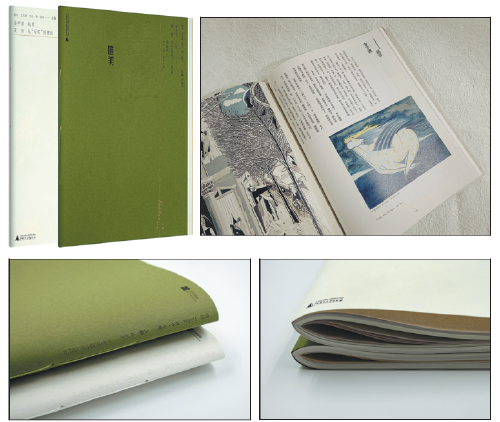

"With soft durable covers and a special design for the characters on the front, we want to create something similar to traditional Chinese books that can be easily rolled when being held or carried," Leng says.
It provides a platform for different artistic forms to communicate and for artists to "cross creative borders".
For instance, Jin Yucheng, writer of Fan Hua (blooming flowers), a novel set in Shanghai that won China's premier book prize, the Mao Dun Literature Award, in 2015, published his paintings in Wei Mei, together with an essay that recounts his transformation into a painter.
"We don't work for a small group of people, some plan or project. We don't have targeted readers, but in our imagination, young people who are interested in truth, goodness and beauty will be our readers," Leng says.
Every issue will be devoted to aesthetics, Leng says, which is worth discussing forever.
"There are people talking about aesthetics all the time, but their voices have been too timid, or they have drawn too little attention," he says, explaining the timing of the publication's resurrection.
"As publishers, we are sensitive to the time in which we live. The remaking of Wei Mei is another expression of our dignity at such a time. Furthermore, aesthetic education is very necessary and important for a developing country," Liu says.
